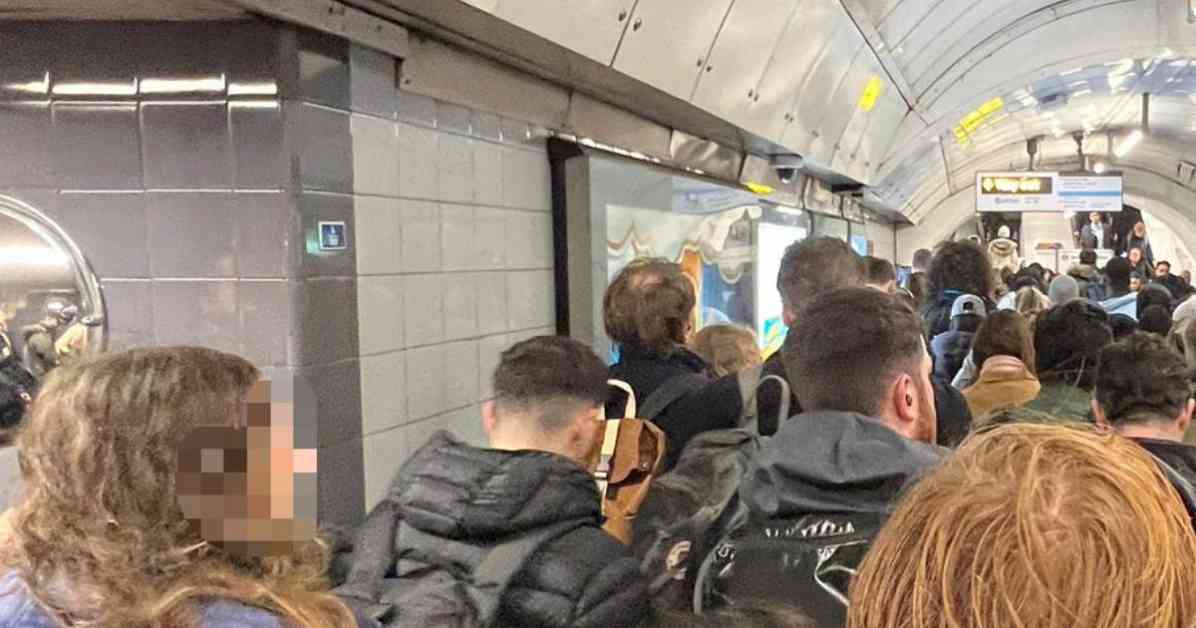Passengers on London’s Elizabeth Line faced severe delays during rush hour, causing frustration and inconvenience for commuters. The delays, which occurred during peak travel times, left many travelers stranded and late for work, highlighting ongoing challenges with the new railway line’s operations.
Challenges with the Elizabeth Line
The Elizabeth Line, a major infrastructure project aimed at improving transportation in London, has faced numerous delays and setbacks since its inception. The line, which was originally scheduled to open in 2018, has been plagued by construction issues, funding problems, and technical difficulties, leading to a series of delays and cost overruns.
Despite these challenges, the Elizabeth Line has been eagerly anticipated by Londoners for its promise of faster, more efficient travel across the city. The line is expected to connect key areas of London, such as Heathrow Airport and Canary Wharf, reducing travel times and congestion on existing transport networks. However, the recent rush hour delays have raised concerns about the line’s reliability and ability to handle high volumes of passengers.
Impact on Commuters
For many commuters, the rush hour delays on the Elizabeth Line were a frustrating experience that disrupted their daily routines. Passengers reported overcrowded trains, long wait times, and confusion at stations, leading to stress and inconvenience during their morning and evening commutes.
“I rely on the Elizabeth Line to get to work on time, but the delays have been a nightmare,” said Sarah, a regular commuter on the line. “I’ve been late to meetings, missed appointments, and had to deal with overcrowded trains. It’s been really frustrating.”
The delays also had a ripple effect on other transport services in London, causing congestion and delays on alternative routes. Buses, taxis, and other modes of transport experienced increased demand as frustrated passengers sought alternative ways to reach their destinations.
Future of the Elizabeth Line
As the Elizabeth Line continues to face challenges with its operations, questions remain about the line’s future and its ability to meet the needs of London’s growing population. Transport officials have promised to address the issues that led to the rush hour delays, including improving communication with passengers, increasing capacity on trains, and enhancing overall reliability.
“We understand the frustrations of passengers who have been affected by the delays on the Elizabeth Line,” said a spokesperson for Transport for London. “We are working closely with our partners to address these issues and ensure that the line can deliver the high-quality service that Londoners deserve.”
Despite the setbacks, many Londoners remain hopeful that the Elizabeth Line will eventually fulfill its promise of transforming transportation in the city. With ongoing investments in infrastructure, technology, and personnel, the future of the Elizabeth Line looks bright, offering a potential solution to London’s complex transportation challenges.
In conclusion, the rush hour delays on the Elizabeth Line have shone a spotlight on the ongoing challenges facing this ambitious infrastructure project. While frustrations remain high among commuters, there is optimism that the line will overcome its current obstacles and become a vital part of London’s transport network. Only time will tell if the Elizabeth Line can deliver on its promise of faster, more efficient travel for the residents of London and beyond.





















